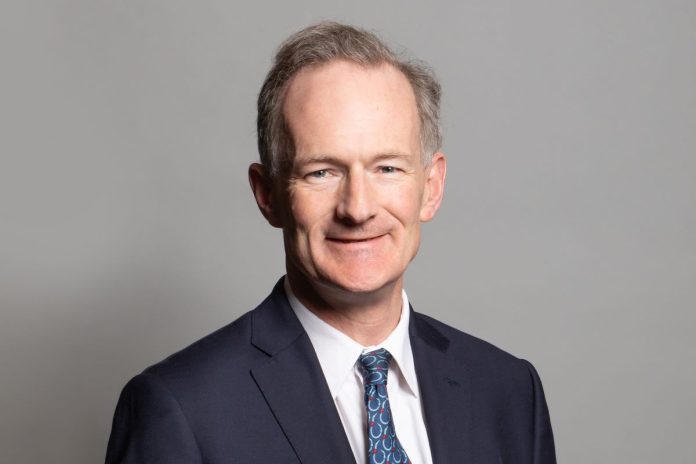The rest of the world is watching the rapid adoption of Open Banking in the UK ‘with envy’, John Penrose MP asserted to an audience at Pay360. However, the country risks being surpassed if certain actions aren’t taken.
In his keynote address kicking off the second day of the industry trade show, the Conservative Party legislator broke down the government’s Data Protection and Digital Information (DPDI) Bill, and why this is so significant for the payments space.
Sponsored by the Department for Science, Innovation and Technology and Department for Science, Innovation and Technology, the Bill has some ‘key economic clauses around smart data’, Penrose, explained.
He continued: “I’m so involved and concerned about getting them right because it has enormous implications not just for payments and Open Banking, but for a potential positive, mostly positive, disruption for huge areas of the UK economy and potentially the global economy as well.”
With an election year ahead, the Conservative government has been very vocal about its efforts to maintain economic growth, much of which has been underpinned by a focus on technological investment, including in fintech.
The aim of the DPDI is, in Penrose’s words, to solidly underpin a regulatory regime around data and privacy protection. This covers a huge range of bases, he said, referring to the legislation as ‘one bill to rule them all’.
Of the Bill’s clauses, there are ‘six or seven’ which most people ‘reckon are pretty good’, he said. However, he believes that the Bill could have an expanded focus in some areas – so will the ‘one bill to rule them all’ turn out to be fantasy or reality?
“The things that are missing, I’m arguing, are two or three things,” Penrose informed the audience at London’s ExCel centre.
“One is pace. Many will know we are in a wonderful position where Open Banking is something that is a British success story, we’re leading the world. We weren’t the first, Australia got there before we did, but we leapfrogged them.”
Having leapfrogged the competition, according to the country’s political leaders, Britain’s main task – when it comes to fintech and finance at least – is to maintain its standing at the top of the table.
This is not a simple task when other countries are looking to develop their own Open Banking networks and regulatory frameworks, however.
If Penrose’s assertion that the UK is the ‘envy’ of the world when it comes to Open Banking is correct, it stands to reason that these nations will also be pursuing the apparent top-spot Britain holds.
Open Banking adoption in the UK is moving at a quick pace, quicker than many other countries, but these same countries are not standing still. Australia and India in particular, in Penrose’s view, are likely competitors, and since they are not standing still, the UK cannot afford to either.
“If we stand still, they will overtake us,” the MP emphasised. “They’re already coming up fast in some areas, including payments, and some are more technologically further ahead.”
UK Open Banking needs more development and it needs it now. In particular, interoperability across different sectors is a vital step the country needs to take according to Penrose.
Sectors such as energy, water, health, telecommunications and online retailing all have specific infrastructures and demands. Open Banking can fit into these, but regulators and providers need to ensure this is done smoothly.
“All these sectors are ripe for disruption in the same way,” he said.
Whilst not mentioned by the MP, Open Banking’s potential in other sectors like betting and gaming has also been emphasised by many. The tech will play a central role in the Gambling Act review’s proposals for finance risk checks, for example, interoperability will be essential to this.
What the sector needs next, Penrose said, is a timetable and a list of sectors which can benefit from Open Banking. According to ‘Westminister gossip’ – which the MP acknowledged isn’t always the most reliable source of information – this is on the way.
“I’m really hopeful that we will get an investable list on this stuff within the next week or two,” he said, expressing hope that this will give the payments industry a list of commercial opportunities for further rollout of Open Banking.
“We can then stretch our lead on Open Banking into these other sectors, creating these apps which we hope will be used by many other countries as well,” he continued.
Penrose’s ideal next step would then be ensuring that all standards are also interoperable so that Open Banking can be smoothly leveraged across various sectors. The last thing we need is to have to ‘reinvent the wheel’ after time Open Banking is introduced to a new sector.
The MP shared a view outlined by many speakers from across payments and fintech at Pay360 – that Open Baning will make life quicker, safer and cheaper for consumers and businesses.
Stakeholders need to now watch this space, according to Penrose, for more announcements form government and parliament which will drive development and adoption forward – but will this come before the UK’s international, perhaps geopolitical, competition gets there first?
“Payments will be at the heart of this, you know that already, but it will mean there is a bigger brighter world out there and it will finally be in our grasp,” Penrose concluded.




















